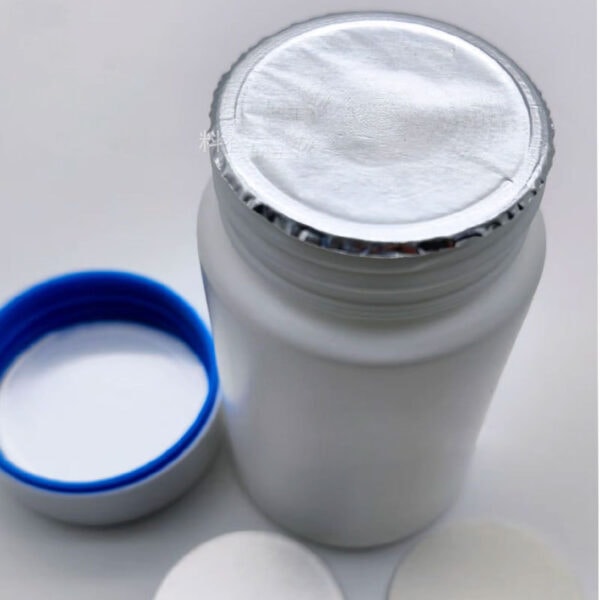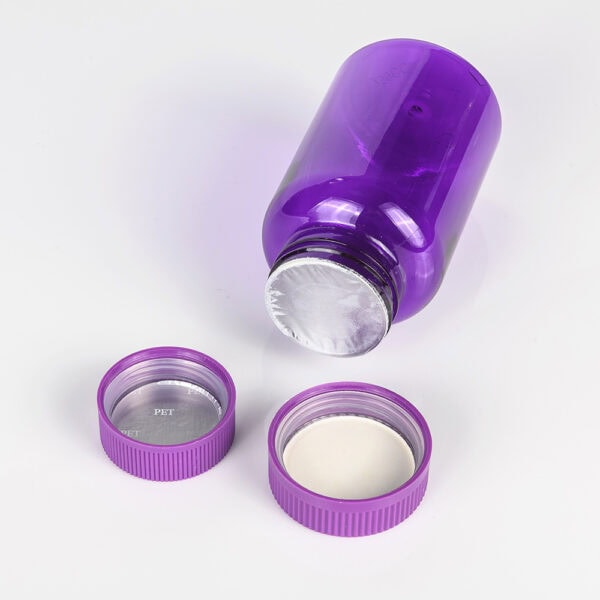Failing to select the right material for induction sealing can lead to product leaks, contamination, and financial losses. However, choosing compatible and high-performance materials ensures secure seals and product safety.
The best material for induction sealing machines depends on the type of container and product. Common materials include aluminum foil laminated with polyethylene (PE), polypropylene (PP), or other polymers, offering reliable seals across industries.
Explore the key considerations for optimal sealing performance and material compatibility.

Importance of Material Compatibility
The compatibility between the sealing material and container is critical. Each container material, such as glass, HDPE, or PP, demands specific seal layers to ensure durability and product integrity.
- Glass containers: Often require special coatings or liners for proper adhesion.
- Plastic containers (HDPE, PP): Need PE or PP laminates to form a secure bond.
Ensuring material compatibility prevents weak seals, which can result in product spoilage or contamination.
Common Materials for Induction Sealing
Aluminum Foil Laminates
Aluminum foil is the most widely used material for induction sealing due to its barrier properties. It is often paired with heat-sealable layers like PE or PP for specific applications.
Polyethylene (PE)
PE is ideal for sealing HDPE containers. It offers excellent durability and flexibility, ensuring a strong bond even in high-pressure applications.
Polypropylene (PP)
PP laminates are commonly used with PP containers, providing strong heat seals and tamper-evident protection.
Role of Heat-Sealable Layers
Heat-sealable layers ensure the induction sealing machine bonds the seal material to the container effectively. Popular coatings include:
- PET (Polyethylene Terephthalate): Common for beverages.
- PE (Polyethylene): Versatile and cost-effective.
- PP (Polypropylene): Durable for high-temperature applications.
Environmental Considerations
Eco-friendly options are becoming increasingly important for sustainability. Recyclable materials like mono-layer laminates and biodegradable options are gaining traction in induction sealing, reducing environmental impact.
Application-Specific Needs
Different industries have unique requirements for induction sealing:
- Food and Beverage: Seals need to provide strong barriers against moisture and oxygen.
- Pharmaceuticals: Require tamper-evident seals for safety and compliance.
- Cosmetics: Demand aesthetic finishes alongside effective sealing.

Temperature and Durability Factors
The sealing material must endure high temperatures and pressures during the sealing process. Materials like aluminum foil with PE layers provide superior performance in extreme conditions, ensuring product integrity throughout its shelf life.
Ensuring Seal Integrity
Proper testing and quality assurance are vital. Compatibility between the seal and container materials must be evaluated to avoid:
- Overheating the seal, leading to cracks.
- Weak seals that allow leaks or contamination.
Cost-Efficiency of Materials
Balancing performance with cost is key for businesses. While high-quality laminates like PP or PET may cost more, they reduce product wastage and improve shelf life, making them a cost-effective choice in the long run.
Regulations and Safety Standards
Compliance with industry standards like FDA and EU guidelines ensures safety and effectiveness. Materials must meet specific certifications to be used in consumable goods, ensuring consumer trust and safety.
Future Trends in Induction Sealing Materials
Innovations in sealing materials are paving the way for stronger, more efficient seals. Emerging technologies include:
- Nanotechnology: Enhanced barrier properties for extended shelf life.
- Smart Packaging: Seals with integrated freshness indicators.
To meet these advancements, consider our flag labeling machines for versatile solutions.
Conclusion
Selecting the right material for induction sealing machines requires careful consideration of container type, product requirements, and regulatory standards. Aluminum foil with heat-sealable layers like PE or PP remains a reliable choice, catering to diverse applications across industries.









